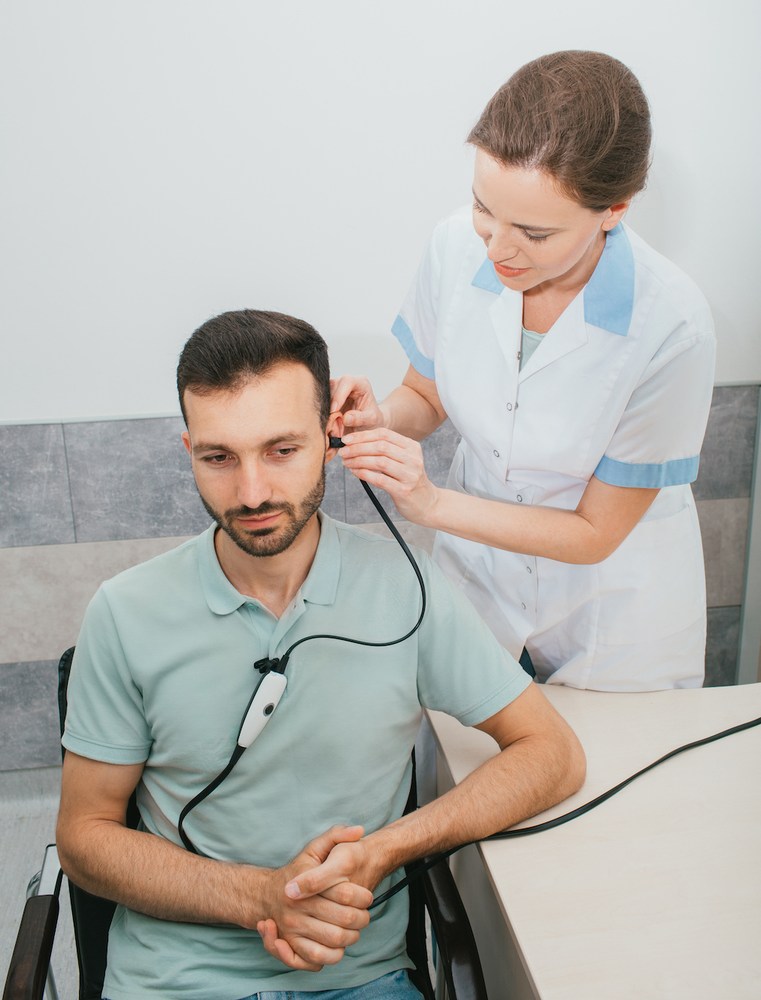Occupational Hazards: Professions at Risk for Hearing Loss
Hearing is an essential part of our daily lives, yet we often take it for

By: admin | October 25, 2022
If you’ve been struggling with hearing loss, you may consider purchasing over-the-counter (OTC) hearing aids. These devices have become increasingly popular in recent years, as they are typically less expensive and easier to obtain than traditional hearing aids. However, there are some things you should know before making a purchase. This blog post will discuss the pros and cons of over-the-counter hearing aids and help you decide if they are right for your specific needs.
As the name suggests, over-the-counter hearing aids are hearing aids that can be bought without a prescription. In other words, they’re hearing aids that don’t need to be fitted by a professional.
The idea behind OTC hearing aids is that they’ll be more accessible than traditional hearing aids. And while this is true to some extent, there are also some downsides to over-the-counter hearing aids that you should be aware of before making a purchase.
OTC hearing aids are designed for individuals with self-perceived mild hearing loss. Unfortunately, most people don’t notice hearing loss until it is reaching more moderate levels. This is thought to occur because hearing loss frequently comes on gradually, making it difficult for you to pick up on the signs right away. Often, you don’t realize your hearing is failing until a friend or family member points it out.
In this case, prescription hearing aids are often recommended because they can address any level of hearing loss personally, even in more complex situations. Additionally, over-the-counter hearing aids are not as effective as traditional hearing aids, and you won’t have the same level of support if you run into any problems.
If you have moderate or severe hearing loss, you’ll probably want to stick with traditional hearing aids fitted by an audiologist. No matter what type of hearing aid you choose, do your research and talk to your doctor before making a purchase. And don’t forget, there are other options for treating hearing loss besides hearing aids, so be sure to explore your options before making a decision.
While over-the-counter hearing aids may be more accessible, there are also some downsides to them that you should be aware of before making a purchase.
One of the most significant downsides is that they’re not customized to your specific hearing loss. That means they may not provide the same level of hearing improvement as hearing aids fitted by an audiologist.
Another downside is that they don’t come with the same level of support and service as a traditional hearing aid provider. That means if you have any problems with your over-the-counter hearing aid, you may be on your own in terms of getting help.
While there are some downsides to over-the-counter hearing aids, there are also pros that you should consider before making a purchase.
One of the biggest pros is that they’re more accessible than traditional hearing aids. These devices can be obtained without a prescription and are typically sold online or in local pharmacies.
If you have mild hearing loss and you’re considering an over-the-counter hearing aid, it’s a good idea to see an audiologist first. They can help you figure out if an over-the-counter hearing aid is right for you and recommend the best solution to your specific needs.
Now that you know more about over-the-counter hearing aids, you may wonder if they’re right for you. Here are a few things to consider before making your purchase.
No matter what type of hearing aid you choose, do your research and talk to your audiologist before making a purchase. They will be able to tell you how severe your hearing loss is and what styles and features could most benefit your specific needs.
If you’re looking for more advice before making a decision on the right hearing technology for your specific needs, contact our friendly team at Hearing Aid Consultants of North Mississippi by calling (662) 234-1337.
Tags: hearing aid selection tips, over-the-counter hearing aids

Hearing is an essential part of our daily lives, yet we often take it for
By: admin | January 31, 2024

If you have experienced a difficulty understanding speech, or following
By: admin | December 28, 2023

Forty-eight million Americans are living with hearing loss, which is
By: admin | November 25, 2023
